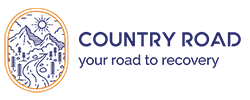Addiction doesn’t just wreck the person who’s using. Its effects are far-reaching, impacting everyone in the family system, sometimes in ways that you don’t even know until you're knee-deep in chaos. Whether you're the parent, partner, sibling, or even close friend of someone struggling with addiction, the truth is: healing the family starts with healing yourself.
The Unspoken Rules Running Your Family (And Why They’re Hurting You)
When addiction hits a family, unspoken "rules" start to take over. These aren't the normal house rules like "take your shoes off inside" or "don't leave dirty dishes everywhere." Nope. We're talking about rules like, “don’t talk about dad’s drinking” or “better to keep your feelings to yourself.”
Country Road Recovery’s Clinical Director, Derek Talkington has this to say about unspoken rules, "There's a lot of fear-based and shame-based things that happen. Each individual family member has their own emotional struggles, and those things combine to create this foundation of unhealthy family rules."
We’re only as sick as our secrets.
Emotional Dishonesty: The Hidden Energy Sucker
"Emotional labor is the energy we spend pretending we don't feel how we feel." And let’s be honest: pretending everything’s fine when you're actually hurt, scared, or angry is exhausting.
Dishonesty—even about emotions—doesn't just build up resentment. It disconnects you from the people you love most.
Derek says, "Upfront honesty is costly—it might cause a conflict—but dishonesty is way more costly in the long run." Translation? You can either pay a little discomfort now... or a whole lot of misery later.
The Manipulation Trap (And How to Escape It)
You want your loved one to make a better choice, so you set the scene—drop hints, lay traps, steer conversations—without saying what you actually want. Sound familiar? In my family we called it hope-speak.
"Sometimes I want them to do something, but I'm not going to tell them exactly what I want them to do. I'm going to set the stage for them. And that's manipulation."
Real communication—honest, clear, direct—is the only way out. It might feel uncomfortable at first, but it’s a heck of a lot more effective (and less soul-sucking) than silent resentment.
You Can't Fix Them (But You Can Heal You)
When someone you love is spiraling, it's easy to think, "If only they would change, everything would be okay." The truth of the matter though is that the only person you can change is yourself.
"Families are only as healthy as their unhealthiest member,” says Derek Talkington. And if you're waiting for your loved one to magically heal so you can finally feel better... you'll be waiting a long time.
Want to speed up the family’s healing process? Focus on yourself.
Setting Boundaries (Without Becoming a Jerk)
Boundaries aren't about controlling other people. They're about taking control of your own behavior.
Derek provides this strategy for boundaries: write down a list of personal boundaries to keep when interacting with someone. "When I started to notice I was crossing one of my own boundaries, I remembered that piece of paper—and it helped me stay in control of myself."
Boundaries are about protecting your peace, not punishing someone else.
Honesty: The Secret Weapon for Family Healing
At the end of the day, healing a family broken by addiction comes down to these three things. Be honest about how you feel. Be clear about what you need. Respect yourself enough to set boundaries.
It’s not about "fixing" the addict. It’s about fixing the parts of yourself that got tangled up along the way—and giving everyone (yourself included) the best possible shot at real, lasting recovery.
Need Support for Family Healing?
You don't have to do this alone. Whether it's therapy, support groups, or just finding safe people to talk to, there are resources out there for families, too. You deserve healing every bit as much as your loved one does. Call Country Road Recovery today to learn how we can help.


